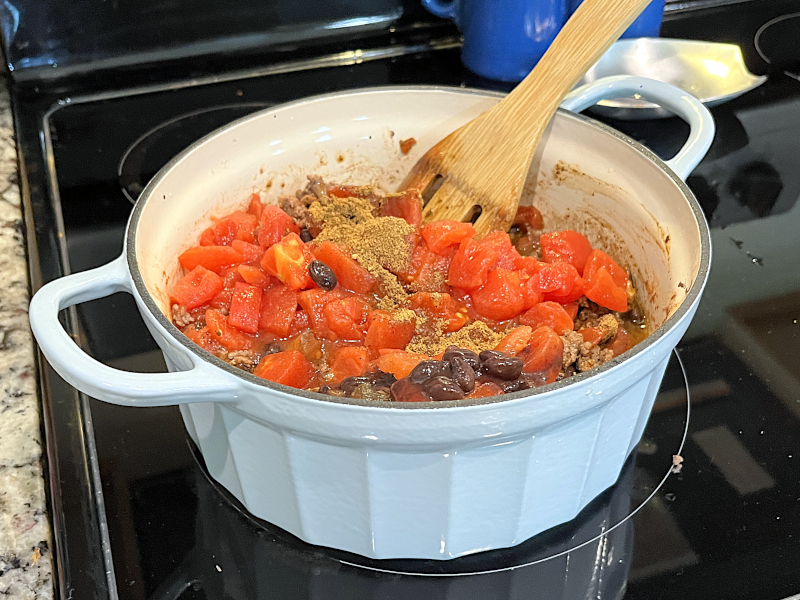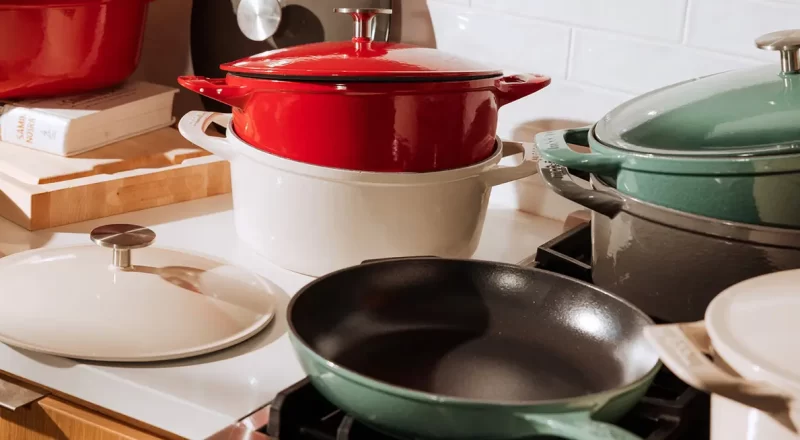If you’re a kitchen professional or a passionate home cook, you know the important role a Dutch oven plays in creating delectable dishes. Unfortunately, rust can attack your beloved cast iron, leaving it looking less than stellar. Don’t worry; we’re delighted to share with you expert-approved methods to restore your Dutch oven to its former glory.
Rust can be a frustrating issue, but it’s not the end of the road for your Dutch oven. In this guide, we’ll delve into the steps you can take to remove rust and ensure your cookware continues to serve you for years to come. Stick with us as we explore everything from prevention to practical solutions.

Understanding Rust on a Dutch Oven
Why Does Rust Form?
Rust forms on cast iron when it comes into contact with moisture and oxygen. This common reaction can be accelerated by certain environmental factors such as humidity and exposure to acidic foods.
Impact of Rust on Dutch Ovens
Allowing rust to sit on your Dutch oven can cause pitting, which compromises the cooking surface. Over time, extensive rust can weaken the structure of the cast iron, potentially rendering it unusable. It’s crucial to address rust as soon as it appears.

Preparing to Remove Rust
Gathering Necessary Supplies
Before you start, ensure you have the following items:
- Steel wool or a stiff brush
- Vinegar
- Baking soda
- Dish soap
- Protective gloves
- Clean towels
Choosing a Well-Ventilated Area
Rust removal can involve strong chemicals and scrubbing, so it’s advisable to work in a well-ventilated area to avoid inhaling any harmful fumes.

Step-by-Step Rust Removal Process
Step 1: Scrubbing Off Loose Rust
Begin by scrubbing the rusted areas with steel wool or a stiff brush. This will help to remove the top layer of rust. Focus on using firm, circular motions.
Step 2: Creating a Vinegar Soak
Mix equal parts vinegar and water in a container large enough to submerge your Dutch oven. Let the pot soak for up to 8 hours. The vinegar’s acidity helps break down rust.
Step 3: Applying Baking Soda Paste
Rinse the Dutch oven thoroughly with water. Create a paste using baking soda and water and apply it to the rust spots. Scrub again using your steel wool or brush.
Step 4: Rinsing and Drying
Rinse off all residue and dry the Dutch oven completely. Any remaining moisture can restart the rusting process, so pat it with clean towels and let it air dry in a low-humidity environment.
Post-Rust Removal Care
Seasoning Your Dutch Oven
To protect your Dutch oven from future rust, it’s essential to season it. Apply a thin layer of vegetable oil to the interior and exterior. Bake the pot upside-down in an oven at 350F for an hour. Allow it to cool in the oven.
Storing Your Dutch Oven
Store your Dutch oven in a dry place with the lid off to ensure air circulation. If stacking, place a paper towel or cloth between the lid and pot to absorb any moisture.
Preventing Rust in the Future
Proper Cleaning Techniques
After each use, clean your Dutch oven with warm water and a mild dish soap. Avoid harsh detergents and never put it in the dishwasher.
Regular Maintenance
Inspect your Dutch oven regularly for signs of rust. Apply a light coat of oil after each wash to keep the surface protected.
Community Tips and Real-Life Experiences
Advice from Kitchen Professionals
Kitchen experts recommend always drying your Dutch oven immediately after washing to prevent moisture from settling in.
Testimonials from Home Cooks
Many home cooks attest to the effectiveness of vinegar soaks and consistent seasoning for maintaining their cast iron cookware.
FAQs
1. Can I use commercial rust removers?
Yes, commercial rust removers are available. However, always follow the manufacturers instructions and rinse thoroughly to remove any chemical residues.
2. Is it safe to cook in a Dutch oven with minor rust?
While minor rust is not dangerous, its best to remove it before cooking. Rust can impart an unpleasant taste to your food.
3. How often should I season my Dutch oven?
Season your Dutch oven after every few uses, depending on how frequently you use it. Regular seasoning maintains the non-stick surface and protects against rust.
For more comprehensive guides on maintaining kitchen appliances, you can visit this link.
Internal links:
As an Amazon Associate, I earn from qualifying purchases.

